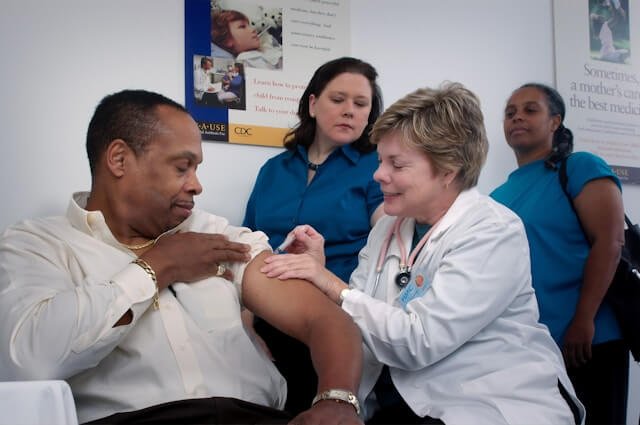Starting a nursing career can feel overwhelming, especially when you’re surrounded by experienced professionals who seem to handle every situation with ease. If you’re wondering how to become a confident nurse, you’re not alone. Thousands of new nurses struggle with self-doubt, imposter syndrome, and the fear of making mistakes that could impact patient care. The good news is that confidence in nursing isn’t an innate trait—it’s a skill that can be developed through proper training, practice, and the right mindset.
Nursing confidence has a direct impact on patient outcomes, job satisfaction, and career progression. When you feel secure in your abilities, you make better decisions, communicate more effectively with patients and colleagues, and approach challenges with a problem-solving mindset rather than anxiety.
Understanding Confidence Issues Among New Nurses
The transition from nursing school to professional practice represents one of the most challenging periods in a nursing career. Research shows that up to 87% of new graduate nurses experience significant confidence issues during their first year of practice. This phenomenon, often referred to as “reality shock,” occurs when the theoretical knowledge acquired in school meets the complex realities of patient care.
Common Confidence Challenges New Nurses Face:
New nurses frequently struggle with decision-making under pressure, feeling unprepared for the pace and complexity of real-world healthcare environments. The fear of making medication errors, missing critical patient changes, or being unable to answer physicians’ questions can create a cycle of anxiety that undermines confidence.
Many new nurses also experience imposter syndrome—the feeling that they don’t belong in their role or that others will discover they’re not as competent as they appear. This psychological barrier can persist even when performance reviews are positive, and patient outcomes are excellent.
The hierarchical nature of healthcare can also contribute to confidence issues. New nurses may feel intimidated by experienced colleagues, physicians, or supervisors, which can make it difficult for them to speak up about concerns or ask questions when needed.
How Quality Training Builds Nurse Confidence
Proper training serves as the foundation for nursing confidence. When you thoroughly understand the principles behind nursing interventions, you can adapt to new situations with greater assurance. Quality education programs focus not just on what to do but also on why specific actions are necessary and how to modify approaches based on patient responses.
The Connection Between Knowledge and Confidence:
Confidence grows when theoretical knowledge is applied in practical situations. Understanding pathophysiology helps you anticipate patient needs and recognize early warning signs. When you understand why certain medications are prescribed and how they work, you can more effectively monitor for side effects and therapeutic responses.
Comprehensive training courses also include exposure to various clinical scenarios through case studies, simulations, and supervised practice. This exposure helps build confidence as a nurse by familiarising you with situations that you may encounter independently.
Structured Learning Approaches That Work:
Effective nurse confidence training follows a progressive approach, beginning with fundamental concepts and gradually increasing in complexity. Programs that combine theoretical instruction with hands-on practice opportunities provide the most robust foundation for confidence development.
Interactive learning methods, such as scenario-based training and peer discussions, help reinforce knowledge while building critical thinking skills. When you can work through complex situations in a supportive learning environment, you develop problem-solving strategies that translate directly to clinical practice.
The Transformative Role of Practice and Repetition
Malcolm Gladwell’s concept of needing 10,000 hours to master a skill is particularly applicable to nursing. However, confidence begins to develop much earlier through deliberate practice and the repetition of core skills. Each successful patient interaction, properly administered medication, and accurately completed assessment builds your confidence foundation.
Creating Opportunities for Skill Development:
Seek out diverse learning experiences whenever possible. Volunteer for different types of patient assignments, shadow experienced nurses in specialized units, and participate in continuing education opportunities. The broader your exposure to various nursing situations, the more confident you’ll become in handling unexpected challenges.
Practice routine procedures until they become second nature. When basic skills like IV insertion, wound care, or vital sign assessment are automatic, you can focus mental energy on higher-level thinking and patient assessment rather than worrying about technical execution.
Learning from Mistakes and Near-Misses:
Confidence doesn’t mean never making errors—it means learning from mistakes and implementing systems to prevent future occurrences. Every experienced nurse has stories of early career mistakes that became valuable learning experiences. The key is approaching errors as opportunities for growth rather than reasons for self-doubt.
Develop a practice of reflection after challenging situations. What went well? What could have been handled differently? This self-assessment helps build clinical reasoning skills and prepares you for similar situations in the future.
Also Read: The Role of Observation in Patient Recovery and Care: A Nurse’s Guide to Clinical Observation
Recommended Resource: Building Confidence Through Comprehensive Education
One of the most effective ways to build confidence as a nurse is through comprehensive, accessible education programs. The best free nurse course options offer comprehensive coverage of essential nursing concepts, eliminating financial barriers that could hinder skill development.
Alison’s Clinical Nursing Skills Diploma: A Confidence-Building Foundation
Alison’s free clinical nursing diploma stands out as an exceptional resource for both new and experienced nurses looking to strengthen their confidence through education. This comprehensive program covers fundamental nursing skills with the depth needed to build genuine competence and confidence.
Key Benefits of This Training Program:
The program’s systematic approach to nursing education helps learners develop confidence through mastery of essential skills. Starting with basic patient care principles and progressing through complex clinical scenarios, students build knowledge incrementally while reinforcing previously learned concepts.
Interactive modules enable learners to practice decision-making in a safe, simulated environment. This Alison diploma course includes case studies based on real-world scenarios, helping to bridge the gap between theoretical knowledge and practical application.
The self-paced nature of the program allows students to spend additional time on challenging concepts without feeling rushed or left behind. This personalized approach helps ensure thorough understanding, which directly translates to increased confidence in clinical settings.
How This Resource Addresses Common Confidence Issues:
The diploma program specifically addresses many areas where new nurses struggle with confidence. Comprehensive medication administration training encompasses not only procedures but also pharmacological principles that enable nurses to understand drug actions and interactions.
Patient assessment modules provide systematic approaches to gathering and interpreting clinical data. When you have reliable frameworks for patient evaluation, you can approach assessments with confidence rather than anxiety about missing important information.
Communication training included in the program helps develop skills for interacting with patients, families, and healthcare team members. Strong communication abilities significantly boost confidence in challenging interpersonal situations.
Additional Strategies to Build Confidence as a Nurse
Beyond formal education, several practical strategies can accelerate confidence development in nursing practice.
Developing Professional Relationships and Mentorship:
Online nurse support communities offer valuable opportunities to connect with peers who face similar challenges. These platforms allow you to ask questions, share experiences, and learn from others without fear of judgment from workplace colleagues.
Seek out mentorship relationships with experienced nurses who demonstrate the confidence and competence you aspire to develop. Good mentors provide guidance, share experiences, and offer perspectives on common challenges faced by developing nurses.
Building Clinical Reasoning Skills:
Confidence in nursing comes largely from strong clinical reasoning abilities. Practice connecting assessment findings with potential causes and appropriate interventions. The more you understand the “why” behind nursing actions, the more confident you’ll become in making independent decisions.
Develop systematic approaches to common nursing challenges. Having reliable frameworks for pain assessment, wound evaluation, or patient education reduces anxiety and increases confidence in your ability to handle these situations effectively.
Continuing Education and Skill Development:
Make continuing education a priority throughout your career. New research, treatment modalities, and best practices emerge regularly in the healthcare field. Staying current with developments in your field helps maintain confidence in your knowledge and skills.
Consider pursuing specialised certifications in areas that interest you. Whether it’s wound care, pain management, or critical care, additional credentials demonstrate expertise and build confidence in specialized nursing areas.
Community Support and Professional Development
The nursing profession thrives on collaboration and mutual support. Building connections with other nurses creates networks that provide both professional and emotional support throughout your career.
Leveraging Online Communities for Growth:
Modern online nurse support platforms offer unprecedented access to professional development resources and peer connections. These communities provide a safe space for discussing challenging cases, asking questions about best practices, and celebrating professional achievements.
Participate actively in online discussions by sharing your own experiences and insights. Teaching others reinforces your own knowledge while building confidence in your expertise. Many nurses find that helping newer colleagues actually increases their own confidence and job satisfaction.
Professional Organizations and Networking:
Join professional nursing organizations relevant to your speciality or interests. These groups provide ongoing professional development opportunities, networking events, and resources to support continued growth and advancement.
Attend conferences, workshops, and seminars whenever possible. Exposure to new ideas and approaches helps expand your knowledge base while connecting you with other professionals who share similar interests and challenges.
Also Read: A Guide to Mobility and Support Techniques for Bedridden Patients
Measuring Progress and Celebrating Growth
Confidence-building is a gradual process that requires patience and self-compassion. Establish specific, measurable goals for your professional development and track progress over time.
Setting Realistic Expectations:
Becoming a confident nurse is not about eliminating all uncertainty or never feeling challenged; it’s about embracing uncertainty and learning from challenges. Confidence means feeling prepared to handle most situations while knowing when and how to seek help for complex or unfamiliar cases.
Set short-term goals that build toward longer-term confidence objectives. For example, focus on mastering pain assessment techniques before progressing to more complex medication calculations. Each small success builds momentum toward greater overall confidence.
Recognizing and Celebrating Achievements:
Keep a record of positive feedback from patients, colleagues, and supervisors. During challenging periods, reviewing these affirmations can help restore confidence and motivation.
Celebrate milestones in your professional development, whether it’s completing a challenging certification program, successfully handling a difficult patient situation, or receiving recognition from colleagues. These celebrations reinforce positive progress and motivate continued growth.
Conclusion: Your Path to Nursing Confidence
Building confidence as a nurse is a journey that requires commitment to ongoing learning, practice, and self-reflection. The combination of a solid educational foundation, practical experience, and supportive professional relationships creates the optimal environment for confidence development.
Remember that every expert nurse once stood where you are now, feeling uncertain and questioning your abilities. The difference between struggling nurses and confident practitioners isn’t the absence of challenges—it’s the approach to overcoming them through education, practice, and perseverance.
Take advantage of available resources, including comprehensive programs like Alison’s Clinical Nursing Diploma and Nursing Leadership Course to build a knowledge foundation that supports lasting confidence. Combine formal education with hands-on practice, mentorship relationships, and peer support to create a robust framework for professional growth.
Your journey to become a confident nurse begins with a single step: the commitment to continuous learning and improvement. With dedication and the right resources, you can develop the confidence needed to provide excellent patient care while finding satisfaction and fulfilment in your nursing career.
The healthcare field needs confident, competent nurses who can adapt to changing situations while maintaining focus on patient wellbeing. By investing in your education and professional development, you’re not just building your own confidence—you’re contributing to the strength and effectiveness of the entire nursing profession.




